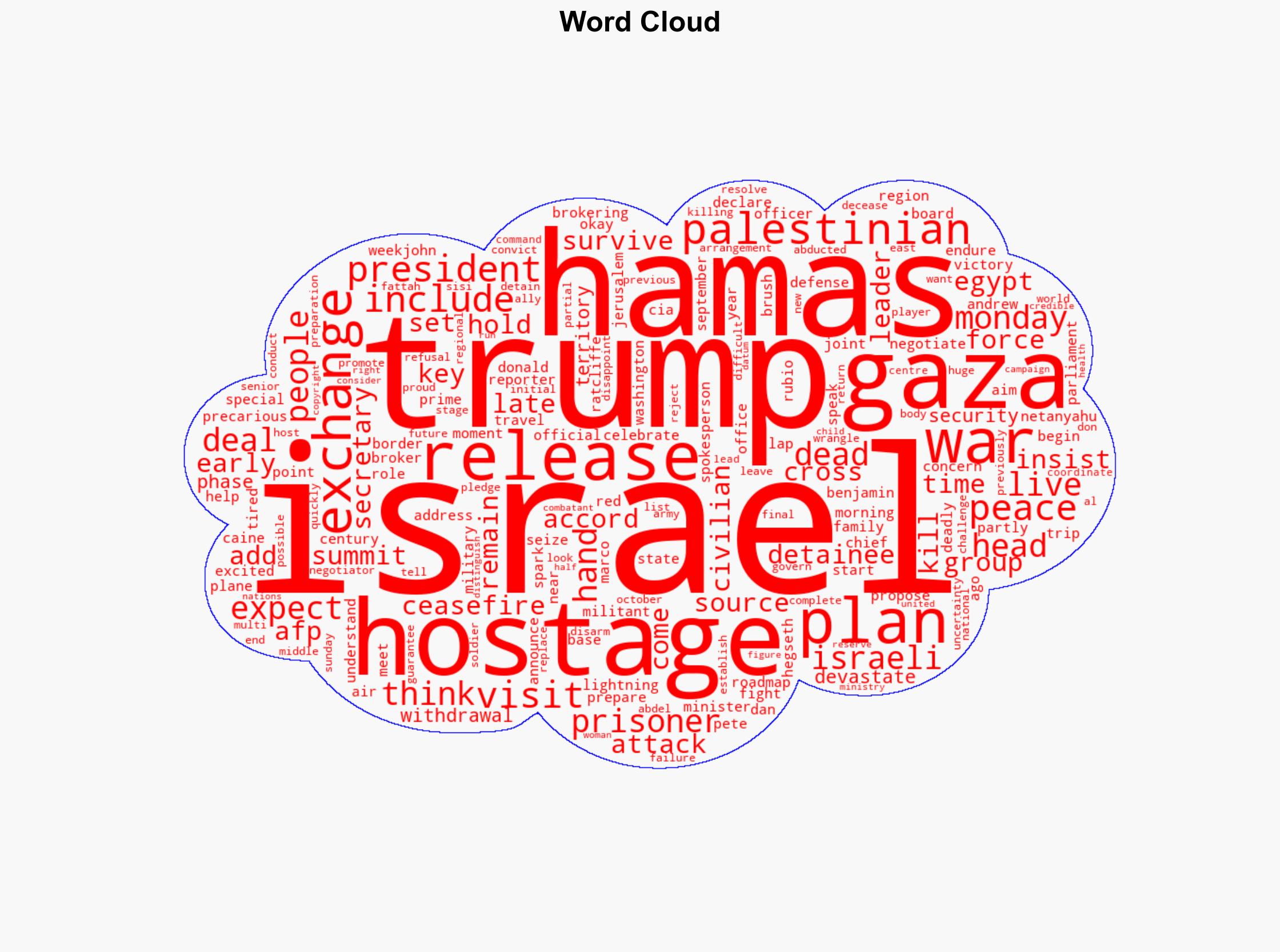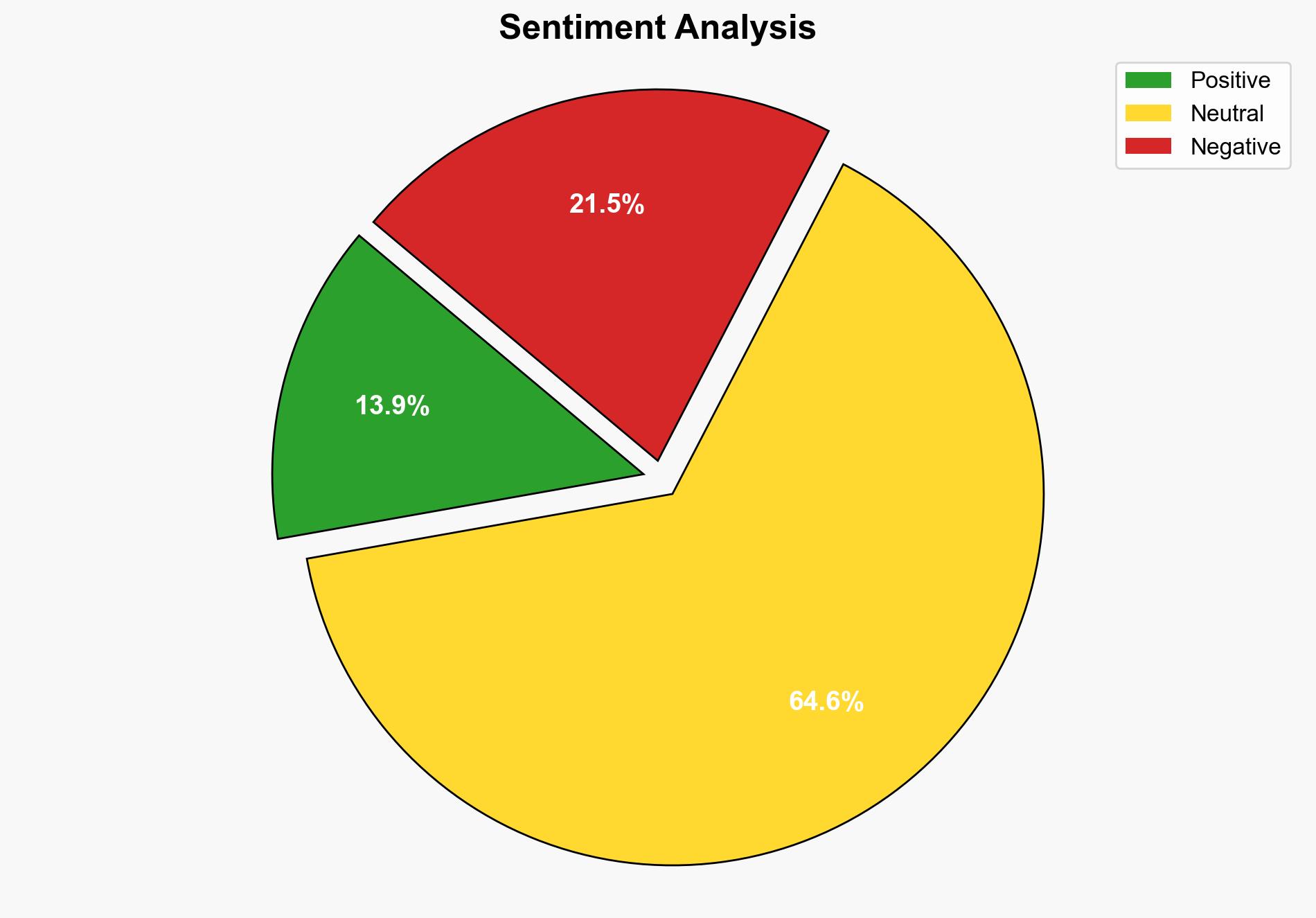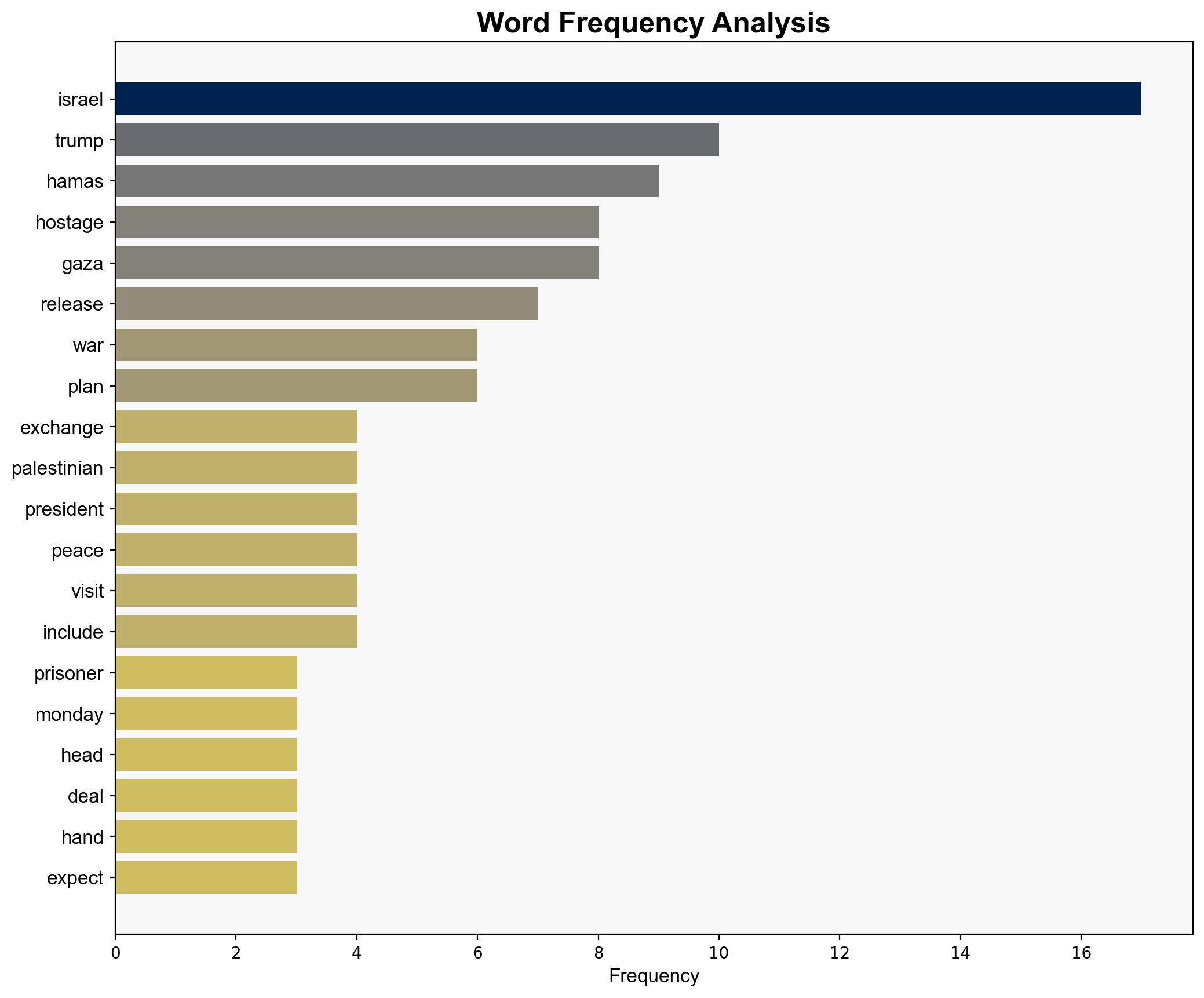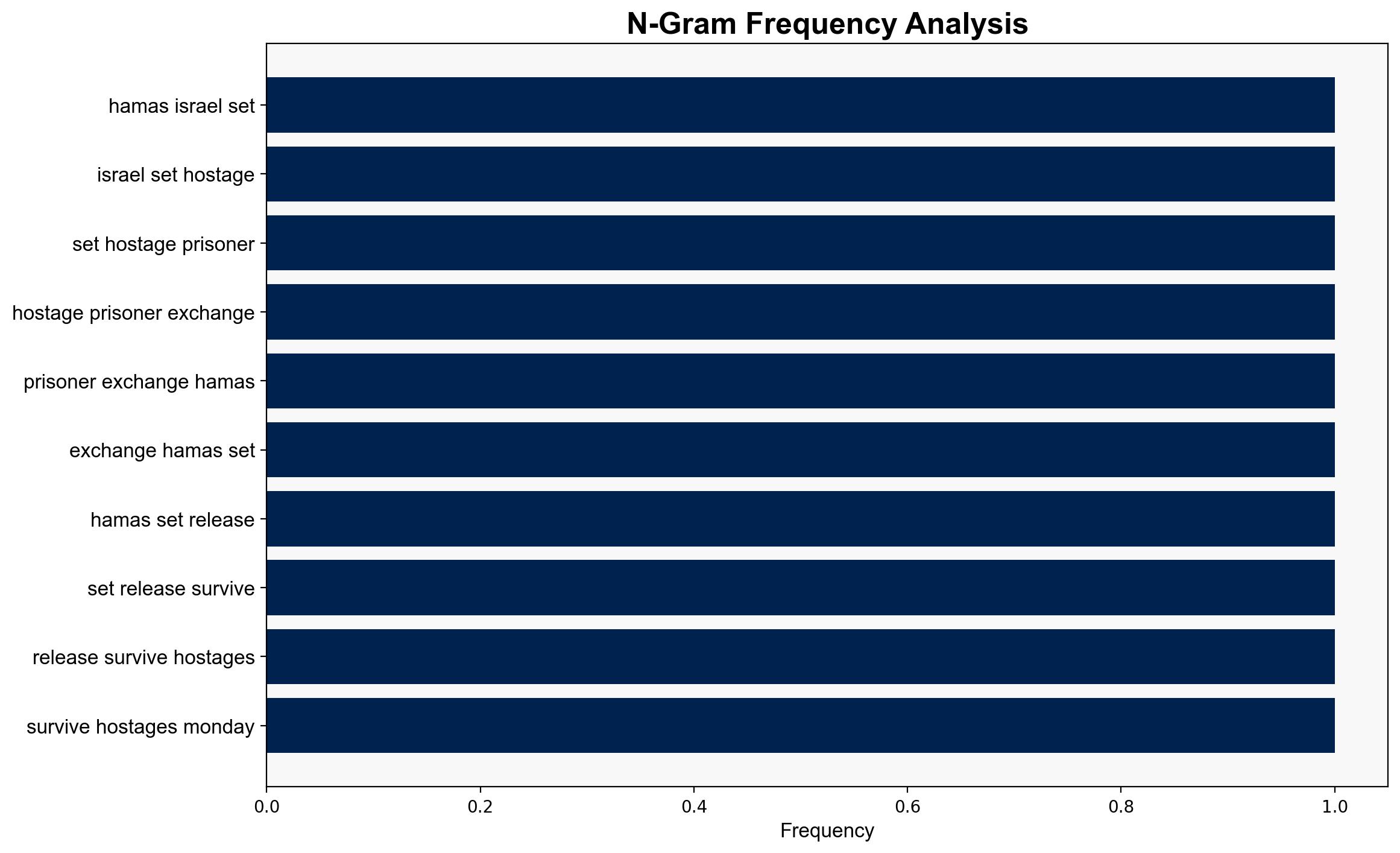Hamas And Israel Set For Hostage And Prisoner Exchanges – International Business Times
Published on: 2025-10-13
Intelligence Report: Hamas And Israel Set For Hostage And Prisoner Exchanges – International Business Times
1. BLUF (Bottom Line Up Front)
The most supported hypothesis is that the hostage and prisoner exchange between Hamas and Israel is a strategic move to de-escalate tensions temporarily, with a moderate confidence level. This exchange is likely a tactical maneuver rather than a step towards long-term peace. Recommended action includes monitoring subsequent political and military developments closely, as well as preparing for potential disruptions or escalations.
2. Competing Hypotheses
1. **Hypothesis A**: The exchange is a genuine step towards a broader peace process, facilitated by international actors, aiming to stabilize the region.
– **Supporting Evidence**: The involvement of international figures like Donald Trump and regional leaders suggests a coordinated effort for peace.
– **Contradictory Evidence**: Historical patterns show similar exchanges have not led to lasting peace.
2. **Hypothesis B**: The exchange is a tactical move by both parties to gain short-term advantages, such as political leverage or public support, without genuine commitment to peace.
– **Supporting Evidence**: The timing of the exchange coincides with political events, such as Trump’s visit, indicating possible ulterior motives.
– **Contradictory Evidence**: The involvement of international mediators could imply a sincere attempt to resolve conflicts.
3. Key Assumptions and Red Flags
– **Assumptions**: It is assumed that both parties are acting in good faith towards peace. This may overlook strategic deception.
– **Red Flags**: The lack of concrete commitments from Hamas to disarm or Israel to withdraw suggests potential insincerity.
– **Blind Spots**: Potential internal dissent within Hamas or Israel that could derail the process is not addressed.
4. Implications and Strategic Risks
– **Geopolitical Risks**: Failure of the exchange could lead to renewed hostilities, affecting regional stability.
– **Economic Impact**: Prolonged conflict could disrupt regional trade and economic activities.
– **Psychological Impact**: Public perception of the exchange as a failure could lead to increased radicalization.
– **Escalation Scenarios**: If the exchange fails, it could trigger retaliatory actions from either side, escalating into broader conflict.
5. Recommendations and Outlook
- Enhance diplomatic engagement with regional stakeholders to support a sustainable peace process.
- Develop contingency plans for potential escalation, including military and humanitarian responses.
- Scenario Projections:
- **Best Case**: Successful exchange leads to further negotiations and gradual de-escalation.
- **Worst Case**: Breakdown of the exchange results in immediate conflict resurgence.
- **Most Likely**: Temporary de-escalation with sporadic tensions and no significant progress towards peace.
6. Key Individuals and Entities
– Donald Trump
– Benjamin Netanyahu
– Abdel Fattah al-Sisi
– Marco Rubio
– Pete Hegseth
– John Ratcliffe
– Dan Caine
7. Thematic Tags
national security threats, counter-terrorism, regional focus





